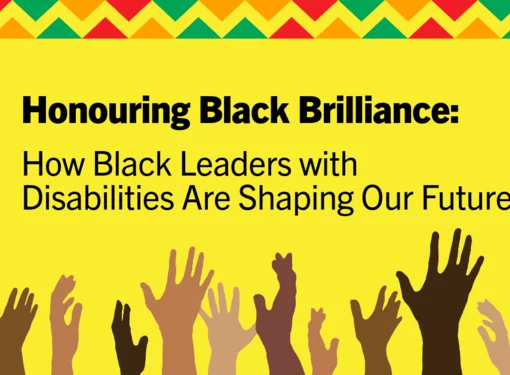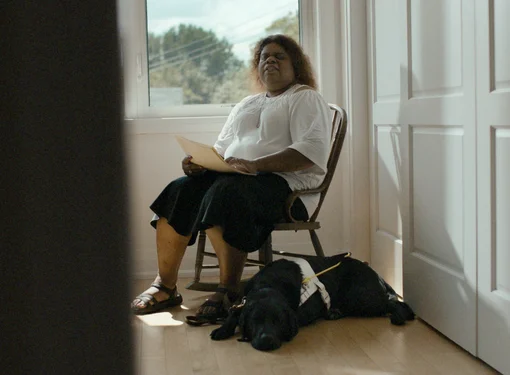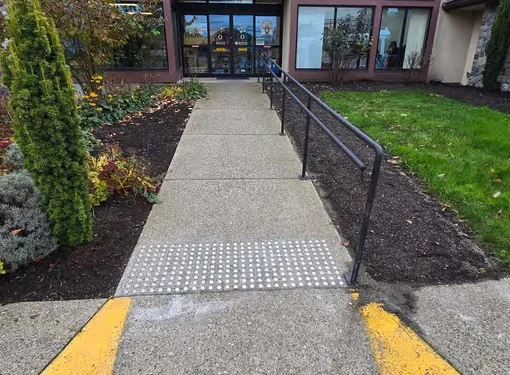10 Things Partially Sighted People Want You to Know
Ben Ho Lung is an intern at the Rick Hansen Foundation, a musician and blind athlete. He lost 97% of his vision at 18 years old.
1 – Blindness is a spectrum
A lot of people assume that anybody who uses a cane or guide dog can’t see at all. The truth is that less than 2% of people with visual impairments experience total blindness. Most people who live with severe vision loss are still able to see varying degrees of light, color, shapes and motion, but not enough to safely navigate without a mobility aid.
2 – “Visually Impaired” and “Blind” are generally interchangeable
The term “visually/vision impaired” typically refers to the blind and partially sighted. A lot of partially sighted people will refer to themselves as blind. It’s a lot easier than explaining the history, statistics and etymology to someone who may not understand the distinction. Neither one is more correct than the other. Also “visually impaired” is a mouthful.
3 – “Legally Blind” does NOT mean “Needs Glasses.”
Glasses are meant to correct problems with the shape of the eye by changing the way light enters them. For any problems occurring from inside the eyes, which is the source of most severe vision impairments, glasses aren’t effective. If someone is legally blind, it means that even with the best possible correction, their acuity is worse than 20 over 200 and/or their field of vision is less than 10 degrees.
4 – Sight loss is often gradual and difficult to notice
The vast majority of people with vision loss aren’t born this way. The truth is it can happen to anybody at any time. Unless you lose a significant amount of vision in a short amount of time, you may not notice until it becomes a serious problem. It’s important to make regular visits to the optometrist. In most cases, the earlier a visual problem is caught, the easier it is to correct and prevent from worsening.
5 – Always ask before providing assistance
A lot of the time, people see a cane or guide dog and just assume the person holding them needs help. While we don’t want to discourage anybody from providing assistance to those who need it, we’d really appreciate it if you consulted us first unless we’re in immediate physical danger.
6 – “Over there” is not a helpful direction for someone who can’t see where you’re pointing or looking.
If you’re going to give directions, it helps to be as specific as possible. If you say something is “over here,” then we can follow the sound of your voice. “Over there” means nothing to us though. It’s always better to give directions relative to our position and orientation. “The door is 2 meters to your left” is a lot more helpful than “the door is over there.”
7 – Our lives don’t revolve around being blind
We have jobs, friends, and interests, just like you. Arthur Young cofounded one of the largest accounting firms in the world while living with both hearing and sight loss. Monet continued to paint after losing most of his vision. Galileo wrote his last book after going completely blind while under house arrest in the 1630’s. These are just a few examples of visually impaired people excelling in areas outside of advocacy and parasports.
8 – We don’t hear better. We listen better.
Contrary to popular belief, losing your vision doesn’t make your hearing better. What it does do is force you to pay more attention to the things you hear. We can identify sounds and judge the position of the source with a great degree of accuracy. Many of us can process auditory information faster than most sighted people can read. These skills (which sighted people can learn as well) are developed over time.
9 – You can and should talk to us like normal people—because we are.
You don’t have to yell. You also don’t have to direct all of your comments and questions for us to the sighted people around us or our guide dogs. It’s a lot easier for us to hear you if you speak to us directly. It’s also a good idea to address us by name, especially if there are other people around, so that we know you’re talking to us.
10 – We are all individuals
It’s great to learn more about visual impairment and how to support the people who live with them. The important thing to remember is that everyone is different. What you learn about one person with a visual impairment may not apply to another. We all have our own ways of doing things.







